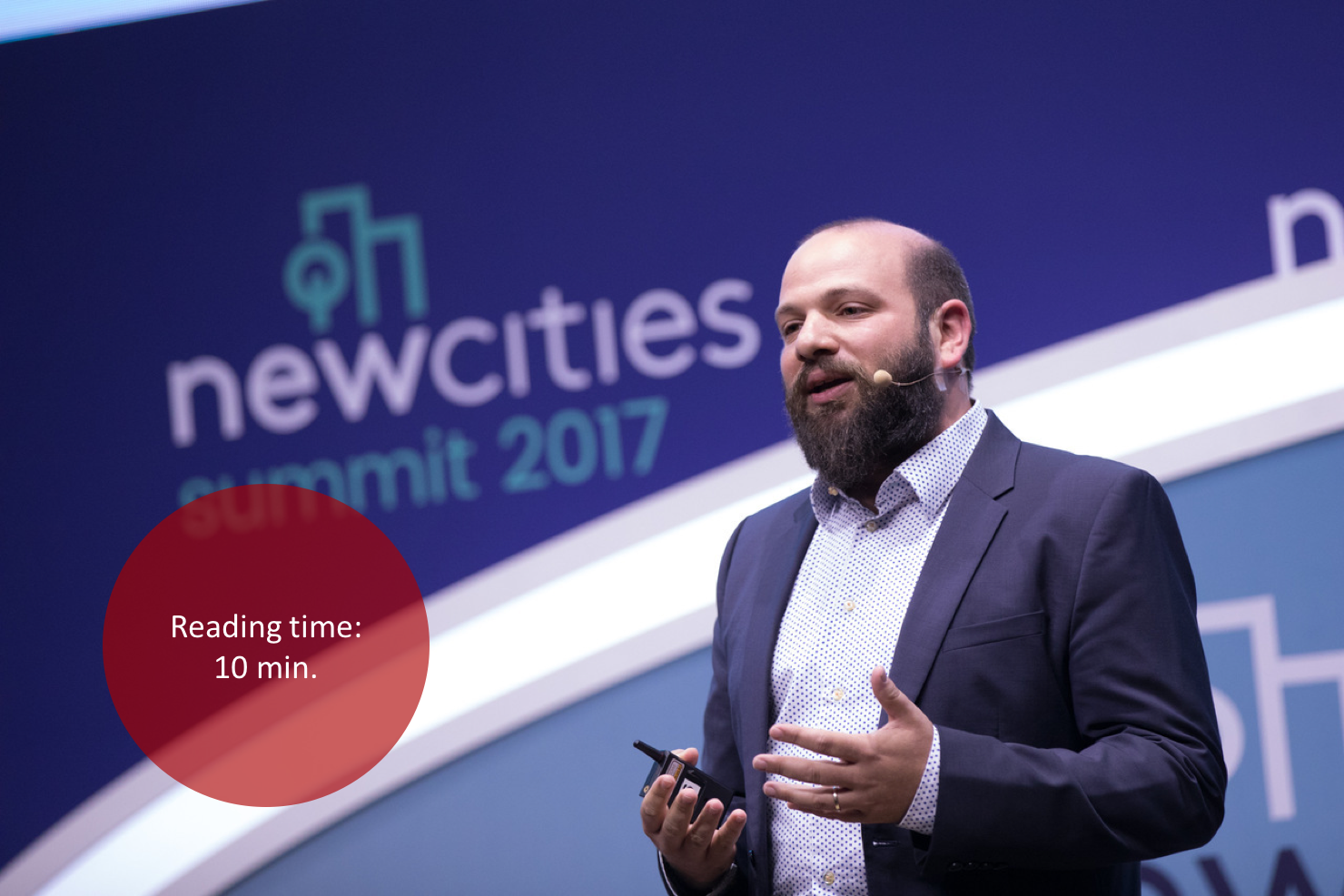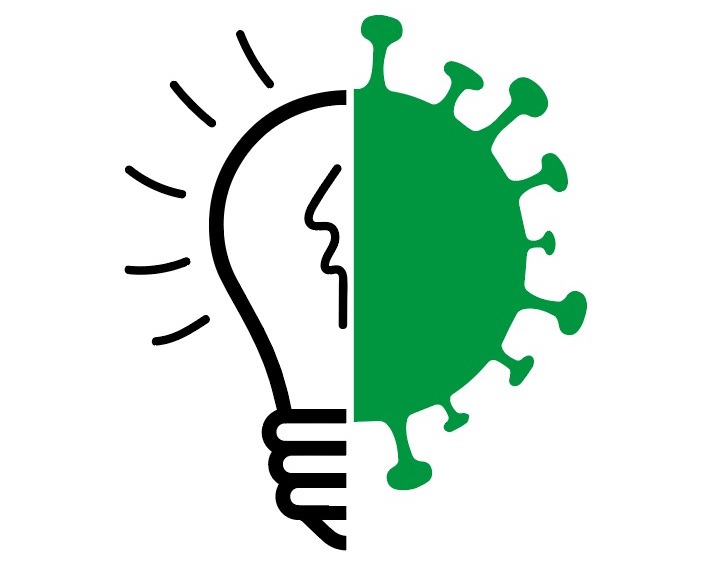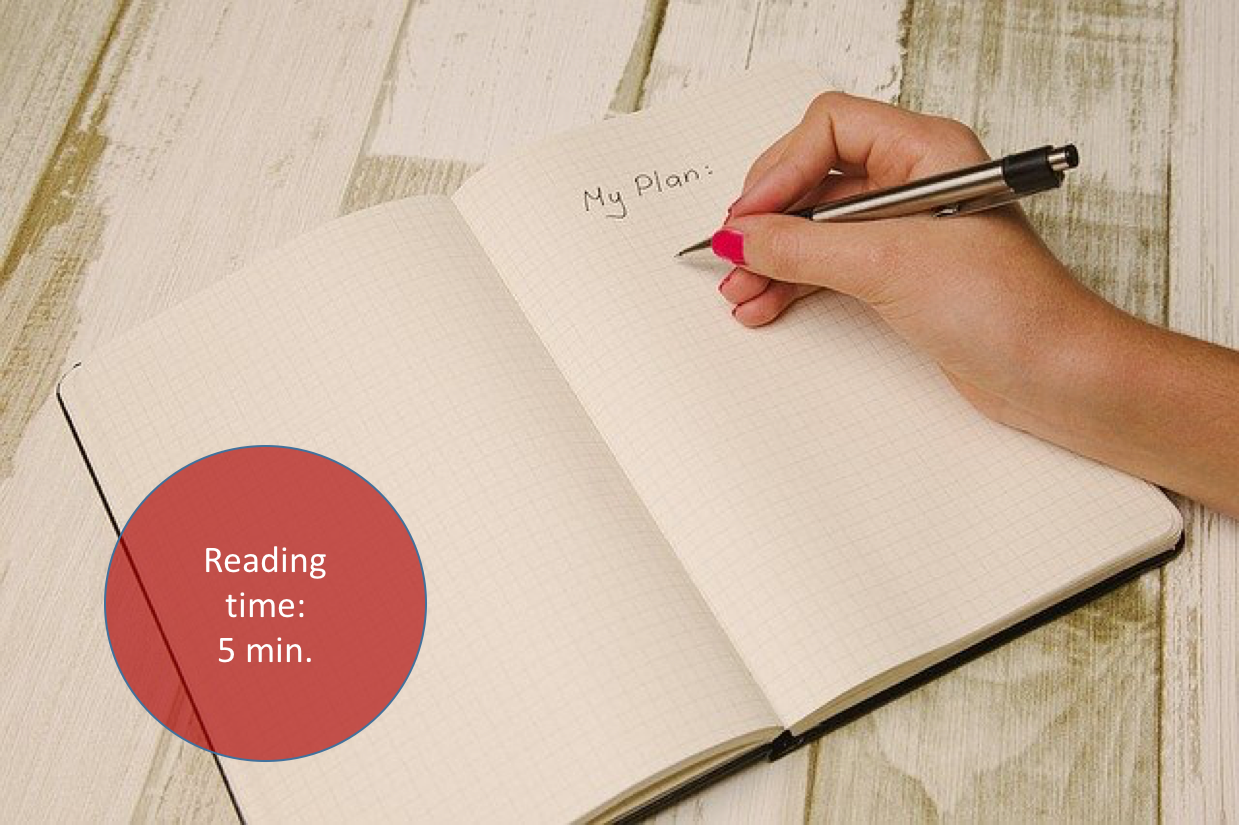Startup Founder Insights - Uncensored
04.10.2020

This interview is a part of an interview series called “Startup Founder Insights - Uncensored”, which is focused on educating inexperienced entrepreneurs. Since the best way to learn is through experience, we have set out to interview seasoned founders who will share their journeys and provide exclusive insights into the world of entrepreneurship to help you skyrocket your company.
In this installment of the series, Tomer Yona interviewed Eyal Feder-Levy CEO and Co-Founder of ZenCity.
Tomer: I would be glad if you could share with us a bit about your company and the product your team is developing?
Eyal: Sure – so, in a nutshell, ZenCity is a four-year-old startup based out in Tel-Aviv, and our goal is to help local government organizations, and municipalities understand the needs and priorities of the community that they serve in order to make better decisions on policy, resource allocation and messaging. We work today with about 150 local government organizations from around the world, but mostly in the US, from very big cities like L.A, Chicago, and Houston, all the way to tiny communities like the town of Blue Ash, Ohio, or the city of Tevaria here in Israel. We are about 70 people on the team and have 21 million USD raised as of today.
Tomer: You mentioned there are about 70 people on the team, what, with regards to the team, building the team and motivating employees, would you describe as the greatest success you have had until now?
Eyal: That’s a great question. First of all, as CEO, that’s probably my most important role. My job is to help find great people and then get out of their way as they do their job successfully. I think that the most exciting thing about our company specifically is that our team has two distinct features:
First is the connectedness, the connection that they feel to the mission of the company. I think a lot of our team really is committed to the change that we want to bring to the world and the impact we're trying to make.
The second is that they have an amazing way of working together as a team. Helping each other out, we have several people that moved between departments in the company, teams that moved between departments, and that ability to work together towards a shared goal and create a whole that’s larger than some of its parts, is probably the thing I'm proudest of.
Tomer: If you could share your experience and knowledge and give us two helpful tips in building a team, what would they be?
Eyal: I think that one great tip is to give people more responsibility than they had before, give people a chance to step up to something they haven’t done before, and together with that, find people who are hungry to grow and take the next level. For example, a lot of our management team, a lot of our senior leadership team, and a lot of our mid-management are people who didn’t do those roles before. A lot of our VPs came from director or head of roles in other companies, as well as a lot of our middle managers and first-time managers, and that ability to recognize these super talented hungry people and give them a bigger responsibility than they’ve ever had and see them grow into that is probably one of the best tips I can ever give.
The other tip is to actively invest in the team. Remember that other than being a company with customers and a mission, the biggest asset that a startup has is its workforce, and for them, it’s the workplace, it’s the place that they get up to in the morning, it’s the breadwinning place for them. So investing in them and creating a good workplace, a workplace that sees them and provides for them, which is very important now in Covid-19 times, is very important. We invest a lot and hopefully, the team feels that as well, the feeling that we care about them, we see them and we know what they're going through.
Tomer: Now, you said you raised how many rounds?
Eyal: We raised 3 rounds as of today.
Tomer: What would you say are your insights from the rounds of investments you’ve made so far? What things do you think got investors hooked on most for example?
Eyal: So one thing I learned in our first round is that my co-founder and I are super ideological about what we're building. We came into this company out of a big passion for the space we were in. We both worked within this space before, and a lot of our thinking was the passion to solve the problem more than the passion to build a big company. When we started fundraising for the first time we spoke that language as well with the investors which were not very effective, this also helped me as CEO by straightening my priorities, you have to be passionate about building a great company, at least as much as you're passionate about the problem that you're trying to solve.
The other thing we learned was how to speak that language and think that way, while emphasizing and putting in focus our business prophecies and how to make them effective, scalable, repeatable, and to celebrate our success in that way and emphasize that when working with investors. I think what eventually got investors excited throughout all of our rounds - and there's also by the way a great blog post by Eitan from TLV partners who led our last round, about why he was excited to lead our last round - is the fact that we are building a great company with really efficient SaaS metrics with really effective processes while pursuing a great mission and doing some good in the world.
Tomer: So basically, you would say, it's not only about solving a problem but also having a market that backs it?
Eyal: Yeah, I'll give you an example, the first time we ever built a pitch deck, we started by talking about how important life in cities are and how important the role of the government is - which is still how we start our customer pitches and the talks I give at conferences - but our investor deck now starts with an overview slide that shows all of our task metrics and how good they are, and only then dives into the mission behind it. We first of all set the stage to say “we're doing great as a company, we have 150 customers, and our sales cycle is this and that and so on and so forth... and now let's talk about what we're doing and why that works so well...”
Tomer: Another question regarding investment – what do you think is the most important goal for an investment? Is it valuation? Is it control? General terms? Maybe it's the relationship with the investors?
Eyal: For me, it's actually none of these. I'll say a few things: Firstly, Investments are not a goal of their own. Theoretically, if you can build what your building without taking a dollar from anyone – that’s much better. The idea behind an investment is what you're able to do with that money – that’s the exciting part. The most important thing about an investment is to think about how much money you need, in the most effective way, to get to your next big milestone or next big thing that your company wants to do. To me, that’s where you need to start optimizing. The first question and for me always the most important question is - how much money do we need to get to our next big milestone. Never raise less than that amount because it's not effective if you don’t have enough resources to build what you're trying to build and then you won't succeed. Additionally, never necessarily aim to raise more than that amount when you know you don’t need it, because as I said investments are not a goal of their own. The second thing to aim for, after making sure we have what we need to build our company, is who are the partners that we're taking on the journey.
I think one of the best pieces of advice I got early on as a founder is that the relationship you have with your investors is critical because it's even stronger than marriage - you can't separate from your investors. These are the people who will be on your board or your cap table and will have a stake in what you're building forever. So you really have to choose these people carefully. To me, it was really important to find the people that I believed I can learn from, the people that I believed who can really provide added value, and who can really be true partners to Ido and me in what we're building. I have to say I have this sort of relationship today with all of my investors. We have a very trusting and open relationship, I count on them for advice, for active help, and I feel like we made really good decisions in choosing people. In some of the cases, we even turned down offers with a better valuation to choose the right partner or offers for more money to choose the right partner. So that’s what I would optimize for.
Tomer: I'll move on to the next mini-series of questions. So from my understanding, ZenCity is a b2b company. How do you build an effective sales team, in the b2b kind of product?
Eyal: So first of all we were even more specific, we were a G-Company, but we can talk about the b2b space as a whole. I think the most important aspect from my perspective is first and foremost understanding who you're selling to, and how much are they willing to pay for what you're selling, because that determines everything about your model later on. For example, if we're selling to a local government organization which has over ten a thousand residents, the persona we're selling to is the city manager, and our price range which is at the mid-market level. How do we set up a sales team that is relevant to that? There are some interesting theories behind what type of salespeople you need for every size of a deal because that generates how many deals you need to bring in. If you're selling your product for one million dollars a year then you only need a hundred customers to get to a hundred million dollars in revenue a year. If you're selling your product for ten thousand a year, you need ten thousand customers to get to a hundred million in sales. So you need to really set up different sales teams if you need a hundred customers or ten thousand customers, you need a whole different prophecy, whole different sales cycles, and a whole different level of hand-holding in the sales process. So, the first question is really to understand which of the models are you operating on. If you're operating in that 5-digit level as an average deal size, then I would say the best way to go is what's called inside sales, and then the most important thing to do is to really nail the process: the pitch, the efficiency, and the repetitiveness of the sale is probably the most important thing. Therefore, the first person you need to hire is going to be somewhat of a pirate, they're going to understand that things are not structured and try out a lot of different things, but once something works they're going to latch on to it and really do the same thing repetitively without trying to reinvent the wheel.
Tomer: Was there a phase where you did sales yourself or were part of a sales team? Were you part of building the fundamentals of the process?
Eyal: Yeah, of course. I think the first step is that the founders have to sell the products themselves because you have to hear the input from the customers in an unsolicited and unbiased way. I probably quote the first ten-fifteen deals in the company myself, and it was critical to hear from each customer what they like, what they don’t like, why they want to buy it, or why they don’t want to buy so that I can instruct the first salesperson we hired, tell them what are the things they should focus on, show them what works and give some structure in which they can operate and not just tell them to go out and try to do whatever they want.
Tomer: Awesome. Is this your first startup, or have you had previous startup journeys in the past?
Eyal: It's not only my first startup it's my first job in the private sector. I previously worked in government, in the NGO sector, and mostly in academia.
Tomer: Was there something from your previous background that helped you as a founder?
Eyal: I think that there are two main things for me:
The first is domain understanding. Being a vertical company selling into a very specific industry, the fact that I came from within the space and understood the industry, understood what the pains are and what the priorities are, the lingo, the jargon, and all that was effective.
The second thing is that I've had the chance to be part of starting things up in a lot of the previous roles that I had. I joined the NGO which I managed very early on, I was part of founding a research institute in the university, and even in my army tenure, I had the privilege of starting a new team, so that ability to learn how to start something from scratch was effective and helpful.
Tomer: Great. I think we've reached the last question: Where do you see ZenCity in five years from now?
Eyal: So many dreams. You know we are huge believers in local governments, we believe that local governments are the way to really make an impact on life in cities, and therefore really make an impact on society. The main goal that we have is to create a standard for how well local governments make big decisions and communicate with the communities that they serve. So, in five years from now I hope we'll be serving a much larger group of local governments, ten times more than what we're serving today, and mostly become that standard where people will expect their government to use ZenCity and tools like ZenCity, when they make the big decisions that they need to make, and to really be that industry standard of how good government works. That’s where I see us, and hopefully in cities around the world.
Eyal Feder-Levy is the CEO and Co-founder of Zencity - a four-year-old startup based out of Tel-Aviv, and their goal is to help local government organizations, municipalities, understand the needs and priorities of the community that they serve in order to make better decisions on policy, resource allocation and messaging.
Below is a recent interview done with Eyal:
https://drive.google.com/file/d/1LkzsWxZJineO-FtK3ls3zxF62yNUVTFu/view?usp=sharing
Do you have a question that could help our community? Email us your question at info@founderrunway.com and your questions might be asked on our next interview!











